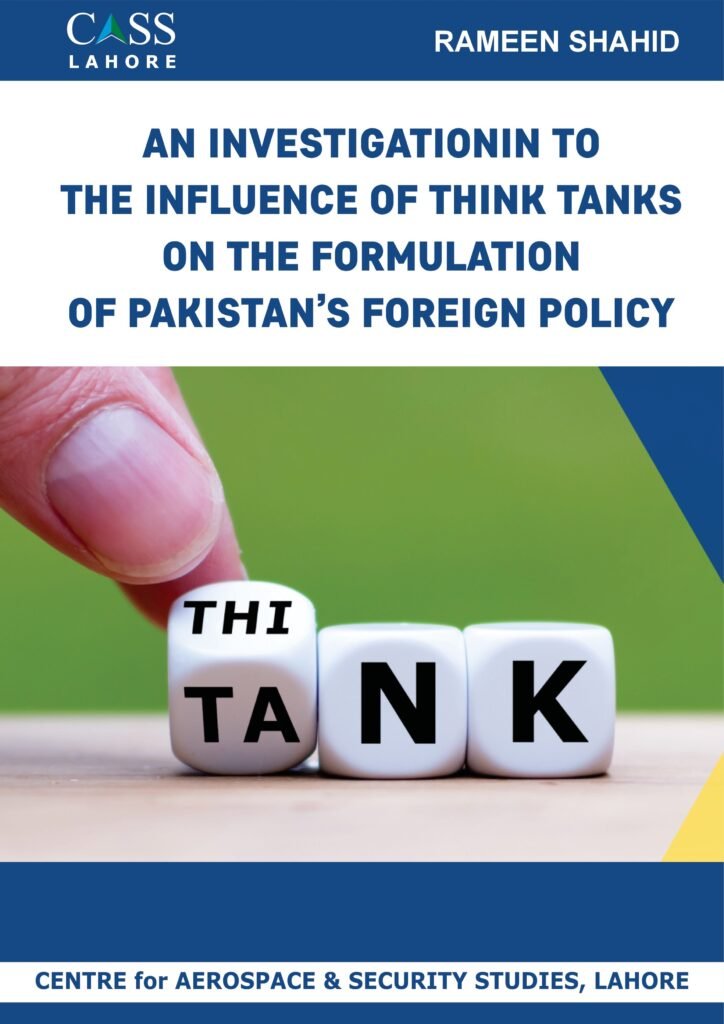AN INVESTIGATION INTO THE INFLUENCE OF THINK TANKS ON THE FORMULATION OF PAKISTAN’S FOREIGN POLICY

ABSTRACT
This research undertakes an in-depth examination of the role played by think tanks in shaping Pakistan’s foreign policy sphere. The study delineates the think tanks’ multifaceted challenges and pivotal functions within the policy formulation framework and explores avenues to enhance their impact on the country’s international relations. Employing a qualitative research design, the investigation draws upon various data sources, including literature reviews, archival materials, and case studies, to elucidate the mechanisms through which think tanks influence foreign policy. Key data sources include policy documents, research papers, annual reports, and publications from other think tanks and government entities, complemented by scholarly works, books, and online resources. The findings of this study offer a comprehensive understanding of the interplay between think tanks and foreign policy formulation in Pakistan, identifying areas of strength and weakness in their operations. By critically examining the challenges these institutions face and their contributions to national interests, the research aims to equip policymakers with strategies to bolster the influence of think tanks, thereby enhancing the deliberative quality of foreign policy decision-making. The ultimate objective is to reinforce the role of research and analysis in shaping a more robust and inclusive foreign policy framework for Pakistan.
Rameen Shahid
CASS LAhore

The Centre for Aerospace & Security Studies (CASS) was established in July 2021 to inform policymakers and the public about issues related to aerospace and security from an independent, non-partisan and future-centric analytical lens.


